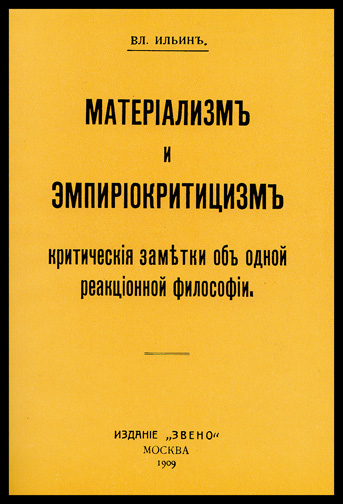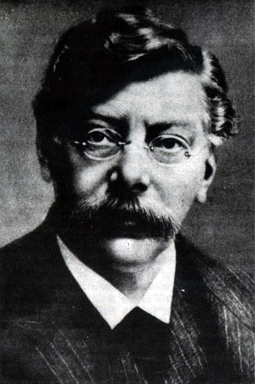|
Friedrich Adler (politician)
Friedrich Wolfgang "Fritz" Adler (9 July 1879 – 2 January 1960) was an Austrian socialist politician, physicist, philosopher and journalist. He is perhaps best known for his assassination of Minister-President Karl von Stürgkh in 1916. Early years Friedrich Wolfgang Adler was born in Vienna, the son of politician Victor Adler (1852–1918), founder of the Austrian Social Democratic Workers' Party (SDAP), and his wife Emma, née Braun (1858–1935), sister of the German publisher Heinrich Braun. Following his father's wishes, he studied chemistry, physics and mathematics at the ETH Zurich, where he became a close friend of Albert Einstein. Political career He committed himself to the Social Democratic Party of Switzerland and in 1897 joined the association of Austrian Social Democrats, working as a journalist. In 1910, Adler became editor of the newspaper ''Volksrecht'' in Zurich. While still established at the ETH, Adler participated in the philosophical discussion about ... [...More Info...] [...Related Items...] OR: [Wikipedia] [Google] [Baidu] |
Friedrich Wolfgang Adler
Friedrich may refer to: Names *Friedrich (surname), people with the surname ''Friedrich'' *Friedrich (given name), people with the given name ''Friedrich'' Other *Friedrich (board game), a board game about Frederick the Great and the Seven Years' War * ''Friedrich'' (novel), a novel about anti-semitism written by Hans Peter Richter *Friedrich Air Conditioning, a company manufacturing air conditioning and purifying products *, a German cargo ship in service 1941-45 See also *Friedrichs (other) *Frederick (other) *Nikolaus Friedreich Nikolaus Friedreich (1 July 1825 in Würzburg – 6 July 1882 in Heidelberg) was a German pathologist and neurologist, and a third generation physician in the Friedreich family. His father was psychiatrist Johann Baptist Friedreich (1796–1862) ... {{disambig ja:フリードリヒ ... [...More Info...] [...Related Items...] OR: [Wikipedia] [Google] [Baidu] |
Materialism And Empirio-criticism
''Materialism and Empirio-criticism'' ( Russian: ''Материализм и эмпириокритицизм, Materializm i empiriokrititsizm'') is a philosophical work by Vladimir Lenin, published in 1909. It was an obligatory subject of study in all institutions of higher education in the Soviet Union, as a seminal work of dialectical materialism, a part of the curriculum called " Marxist–Leninist Philosophy". Lenin argued that human perceptions correctly and accurately reflect an objective external world. Lenin formulates the fundamental philosophical contradiction between idealism and materialism as follows: "Materialism is the recognition of 'objects in themselves' or objects outside the mind; the ideas and sensations are copies or images of these objects. The opposite doctrine (idealism) says: the objects do not exist, outside the mind '; they are 'connections of sensations'."W. I. Lenin: '' Materialism and empirio-criticism. Critical remarks about a reactionary philosoph ... [...More Info...] [...Related Items...] OR: [Wikipedia] [Google] [Baidu] |
Karl Renner
Karl Renner (14 December 1870 – 31 December 1950) was an Austrian politician and jurist of the Social Democratic Workers' Party of Austria. He is often referred to as the "Father of the Republic" because he led the first government of German-Austria and the First Austrian Republic in 1919 and 1920, and was once again decisive in establishing the present Second Republic after the fall of Nazi Germany in 1945, becoming its first President after World War II (and fourth overall). Early life Renner was born the 18th child of an ethnic German family of poor wine-growers in Unter-Tannowitz (present-day Dolní Dunajovice in the Czech Republic), then part of the Margraviate of Moravia, a crown land of the Austro-Hungarian Empire. Because of his intelligence, he was allowed to attend a selective '' gymnasium'' in nearby Nikolsburg (Mikulov), where one of his teachers was Wilhelm Jerusalem. From 1890 to 1896 he studied law at the University of Vienna. In 1895 he was one of the foun ... [...More Info...] [...Related Items...] OR: [Wikipedia] [Google] [Baidu] |
Reformism
Reformism is a political doctrine advocating the reform of an existing system or institution instead of its abolition and replacement. Within the socialist movement, reformism is the view that gradual changes through existing institutions can eventually lead to fundamental changes in a society's political and economic systems. Reformism as a political tendency and hypothesis of social change grew out of opposition to revolutionary socialism, which contends that revolutionary upheaval is a necessary precondition for the structural changes necessary to transform a capitalist system to a qualitatively different socialist system. Responding to a pejorative conception of reformism as non-transformational, non-reformist reform was conceived as a way to prioritize human needs over capitalist needs. As a doctrine, centre-left reformism is distinguished from centre-right or pragmatic reform which instead aims to safeguard and permeate the '' status quo'' by preventing fundamental st ... [...More Info...] [...Related Items...] OR: [Wikipedia] [Google] [Baidu] |
Censorship
Censorship is the suppression of speech, public communication, or other information. This may be done on the basis that such material is considered objectionable, harmful, sensitive, or "inconvenient". Censorship can be conducted by governments, private institutions and other controlling bodies. Governments and private organizations may engage in censorship. Other groups or institutions may propose and petition for censorship.https://www.aclu.org/other/what-censorship "What Is Censorship", ACLU When an individual such as an author or other creator engages in censorship of his or her own works or speech, it is referred to as ''self-censorship''. General censorship occurs in a variety of different media, including speech, books, music, films, and other arts, the press, radio, television, and the Internet for a variety of claimed reasons including national security, to control obscenity, pornography, and hate speech, to protect children or other vulnerable groups, to promote or r ... [...More Info...] [...Related Items...] OR: [Wikipedia] [Google] [Baidu] |
Arbeiter-Zeitung (Vienna)
''Arbeiter Zeitung'' ( German: "Workers' Newspaper") was the daily of the Social Democrat Party and published in Austria. It existed between 1889 and 1991. History and profile ''Arbeiter Zeitung'' was started on 12 July 1889 by the Socialist Party and Victor Adler. The paper was banned in 1934 after the 13 February issue, but reappeared on 4 August 1945 as the main organ of the Austrian Social Democrat Party, continuing until 1989, providing general coverage of Austrian and international news. From 1985 through 1989 it was published under the title ''Neue AZ''; from 1989 to 1991 it was published as ''AZ''. From 1989 until 1991 it was published as an independent newspaper, and ceased publication in 1991. In the 1920s the circulation of the daily reached 100,000 copies. The paper reduced its circulation by one quarter from 1960 to 1990. Among its noted contributors and editors in the pre-war period was its cultural editor David Josef Bach. Ernst Fischer served as the editor of t ... [...More Info...] [...Related Items...] OR: [Wikipedia] [Google] [Baidu] |
Austria-Hungary
Austria-Hungary, often referred to as the Austro-Hungarian Empire,, the Dual Monarchy, or Austria, was a constitutional monarchy and great power in Central Europe between 1867 and 1918. It was formed with the Austro-Hungarian Compromise of 1867 in the aftermath of the Austro-Prussian War and was dissolved shortly after its defeat in the First World War. Austria-Hungary was ruled by the House of Habsburg and constituted the last phase in the constitutional evolution of the Habsburg monarchy. It was a multinational state and one of Europe's major powers at the time. Austria-Hungary was geographically the second-largest country in Europe after the Russian Empire, at and the third-most populous (after Russia and the German Empire). The Empire built up the fourth-largest machine building industry in the world, after the United States, Germany and the United Kingdom. Austria-Hungary also became the world's third-largest manufacturer and exporter of electric home appliances, e ... [...More Info...] [...Related Items...] OR: [Wikipedia] [Google] [Baidu] |
World War I
World War I (28 July 1914 11 November 1918), often abbreviated as WWI, was List of wars and anthropogenic disasters by death toll, one of the deadliest global conflicts in history. Belligerents included much of Europe, the Russian Empire, the United States, and the Ottoman Empire, with fighting occurring throughout Europe, the Middle East, Africa, the Pacific Ocean, Pacific, and parts of Asia. An estimated 9 million soldiers were killed in combat, plus another 23 million wounded, while 5 million civilians died as a result of military action, hunger, and disease. Millions more died in Genocides in history (World War I through World War II), genocides within the Ottoman Empire and in the Spanish flu, 1918 influenza pandemic, which was exacerbated by the movement of combatants during the war. Prior to 1914, the European great powers were divided between the Triple Entente (comprising French Third Republic, France, Russia, and British Empire, Britain) and the Triple A ... [...More Info...] [...Related Items...] OR: [Wikipedia] [Google] [Baidu] |
Second International
The Second International (1889–1916) was an organisation of Labour movement, socialist and labour parties, formed on 14 July 1889 at two simultaneous Paris meetings in which delegations from twenty countries participated. The Second International continued the work of the dissolved International Workingmen's Association, First International, though excluding the powerful Anarcho-syndicalism, anarcho-syndicalist movement. While the international had initially declared its opposition to all War, warfare between European powers, most of the major European parties ultimately chose to support their respective states in World War I. After splitting into pro-Allies of World War I, Allied, pro-Central Powers, and Antimilitarism, antimilitarist factions, the international ceased to function. After the war, the remaining factions of the international went on to found the Labour and Socialist International, the International Working Union of Socialist Parties, and the Communist Internation ... [...More Info...] [...Related Items...] OR: [Wikipedia] [Google] [Baidu] |
Otto Bauer
Otto Bauer (5 September 1881 – 4 July 1938) was one of the founders and leading thinkers of the left-socialist Austromarxists who sought a middle ground between social democracy and revolutionary socialism. He was a member of the Austrian Parliament from 1907 to 1934, deputy party leader of the Social Democratic Workers' Party (SDAP) from 1918 to 1934, and Foreign Minister of the Republic of German-Austria in 1918 and 1919. In the latter position he worked unsuccessfully to bring about the unification of Austria and the Weimar Republic. His opposition to the SDAP joining coalition governments after it lost its leading position in Parliament in 1920 and his practice of advising the party to wait for the proper historical circumstances before taking action were criticized by some for facilitating Austria's move from democracy to fascism in the 1930s. When the SDAP was outlawed by Austrofascist Chancellor Kurt Schuschnigg in 1934, Bauer went into exile where he continued to work ... [...More Info...] [...Related Items...] OR: [Wikipedia] [Google] [Baidu] |
Austromarxism
Austromarxism (also stylised as Austro-Marxism) was a Marxist theoretical current, led by Victor Adler, Otto Bauer, Karl Renner, Max Adler and Rudolf Hilferding, members of the Social Democratic Workers' Party of Austria in Austria-Hungary and the First Austrian Republic, and later supported by Austrian-born revolutionary and assassin of the Imperial Minister-President Count von Stürgkh, Friedrich Adler. It is known for its theory of nationality and nationalism, and its attempt to conciliate it with socialism in the imperial context. More generally, the Austromarxists strove to achieve a synthesis between social democracy and revolutionary socialism. Uniquely, Austromarxists posited that class consciousness in the working class could be achieved more organically through the maintenance of national autonomy, in contrast to the internationalist perspective and the notion of the party vanguard popular in orthodox Marxist circles elsewhere in Europe. Overview Beginnin ... [...More Info...] [...Related Items...] OR: [Wikipedia] [Google] [Baidu] |






